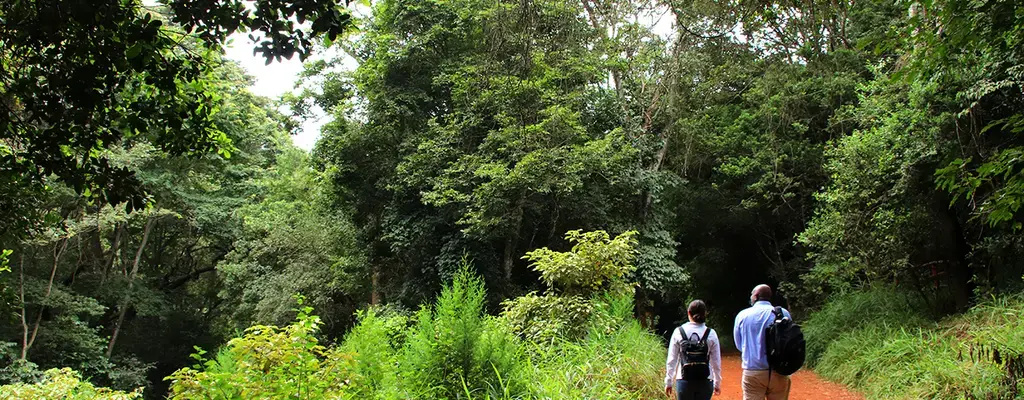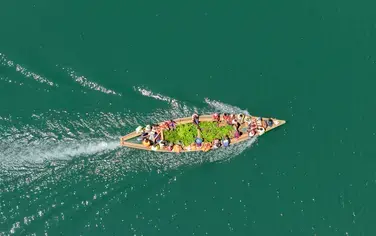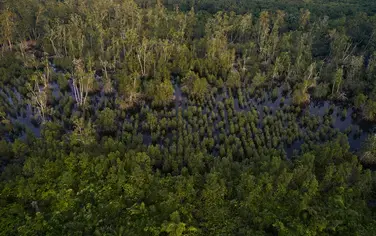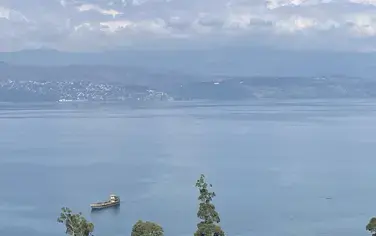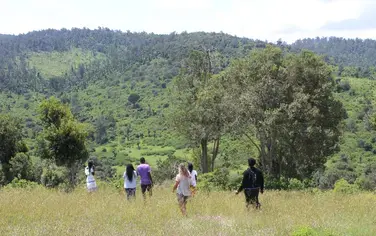From Sunday August 26 to Tuesday August 28, 177 participants came together to support and discuss the African Forest Landscape Restoration Initiative (AFR100) in Nairobi, Kenya. The goal? To make progress on restoring 100 million hectares of degraded land and forests across the African continent. Representatives from the Initiative’s 27 partner countries, 27 technical partners, and 12 financial partners went on a field trip to two urban forests, announced exciting new platforms, country pledges and implementation strategies, and resolved to make progress on restoring Africa.
What else happened at the meeting of this Africa-led and Africa-owned initiative? Read our round-up of three days of exciting news and events below:
The meeting began early on Sunday morning with a field trip to Nairobi’s two unique restoration sites; Brackenhurst Forest and Karura Forest. Karura is a protected area of 1,041 hectares within Nairobi’s city limits and is a shining example of what strong social movements centered on conservation and restoration can achieve. The forest was threatened by property developers in the 1990s, but the late Prof Wangari Maathai of the Greenbelt Movement, a future Nobel laureate, led a successful public campaign to save the forest.
The delegates also visited Brackenhurst Botanic Garden, which has restored over 40 hectares of land with native plant species, reinforcing the ecosystem services provided by the Brackenhurst Valley watershed. There, the AFR100 delegates experienced first-hand a successful restoration project, and they left the reserve ready to work.
In partnership with the Global Landscapes Forum, 20 senior environment journalists from across the continent attended a media workshop on Monday. AFR100 partners from World Resources Institute (WRI), GIZ and the World Bank briefed the journalists on the history and current state of AFR100 and provided examples of restoration success stories from Ethiopia, Kenya, and Madagascar.
Bright and early on Monday, over 177 attendees packed the conference room of Nairobi’s InterContinental Hotel, eager to learn about the latest developments in forest and landscape restoration in Africa. In the past year, AFR100 has grown once again. With Burkina Faso’s commitment of 5 million hecatres along the margins of the 3rd AFR100 Annual Partnership Meeting, 27 countries have now joined the initiative, pledging 96.4 million hectares. An ambitious hectare commitment is expected to be announced soon from another partner country. African dedication to the initiative is clear, but how can the pledges be implemented on the ground? Luckily, AFR100 partners have risen to the challenge.
The Honorable Mohamed Elmi, Chief Administrative Secretary of the Ministry of Environment and Forestry of Kenya and Mamadou Diakhite, the lead of the AFR100 secretariat at the African Union’s NEPAD Agency kicked off the two-day meeting with welcoming remarks.
Wanjira Mathai, chair of the Wangari Maathai Foundation and WRI Senior Advisor, then gave a rousing speech on building a restoration movement. For Mathai, only by thinking about the long-term sustainability of interventions across an entire landscape will any lasting change be made. She called on national governments to work with local and regional officials to implement restoration on the ground.
H.E. Kebede Yimam, the Ethiopian Minister of Forestry, pointed out that 50% of Africa’s population lives on degraded land, and that number will increase unless governments, NGOs, and the private sector take action. The Honorable Mohammed Elmi also emphasized that local governments are key actors in restoration. Without robust support from local authorities, national plans can’t be implemented. The same goes for local communities, down to the village level.
Representatives from the governments of Nigeria, Madagascar, and Kenya then pointed out that building a business case around restoration is necessary, but that they find working with the private sector difficult. Easing access to finance is a challenge that AFR100 partners will need to address. The Government of Malawi announced a $7 million allocation from the federal government to implement FLR, and highlighted two pending private sector deals to capitalize businesses that restore land.
In a session on Scaling the FLR/AFR100 Movement, representatives from Niger, Togo, and Sudan outlined what their governments are doing to promote restoration. Since formalizing its commitment to AFR100 just last year, the Government of Nigeria has supported FLR implementation on 863 hectares of degraded land. Yacouba Seybou of Niger declared that farmers in his country have successfully restored millions of hectares, lifting entire rural areas out of poverty.
Togo is a small country, but it has a lot of room for restoration, pointed out Prince Gnama, the country’s AFR100 lead. Togo only finalized its commitment of 1.4 million hectares this year, but a pilot plot of 400 ha has begun the restoration process . Ali Osman Hamid of Sudan stressed that his country needed capacity-building support. He wholeheartedly endorsed a community-centered approach to restoration and called for more information on how to finance scaling up restoration.
After a busy first day of meetings, the AFR100 conference reconvened on Tuesday morning to discuss the future of landscape restoration in Africa. For Elvis Paul Tangem, the coordinator of the African Union’s Great Green Wall for the Sahara and Sahel Initiative, AFR100’s African leadership, with NEPAD at the core, is what sets it apart. He called for better coordination between the various restoration initiatives across Africa. Stewart Maginnis, the director of IUCN’s Global Forest and Climate Change Programme, amplified Tangem’s call for coordination, but also stressed the need for efficiency in the face of the daunting challenge of landscape restoration.
Over three days of inspiring presentations and intense discussions, the 3rd Annual AFR100 Partner Meeting brought landscape restoration in Africa back into the spotlight. Going into 2019, the AFR100 team is excited to see what our partners on the ground will accomplish toward our ultimate shared goal of bringing 100 million hectares into restoration by 2030. After a productive and inspiring conference, the landscape restoration agenda in Africa has never been stronger.
